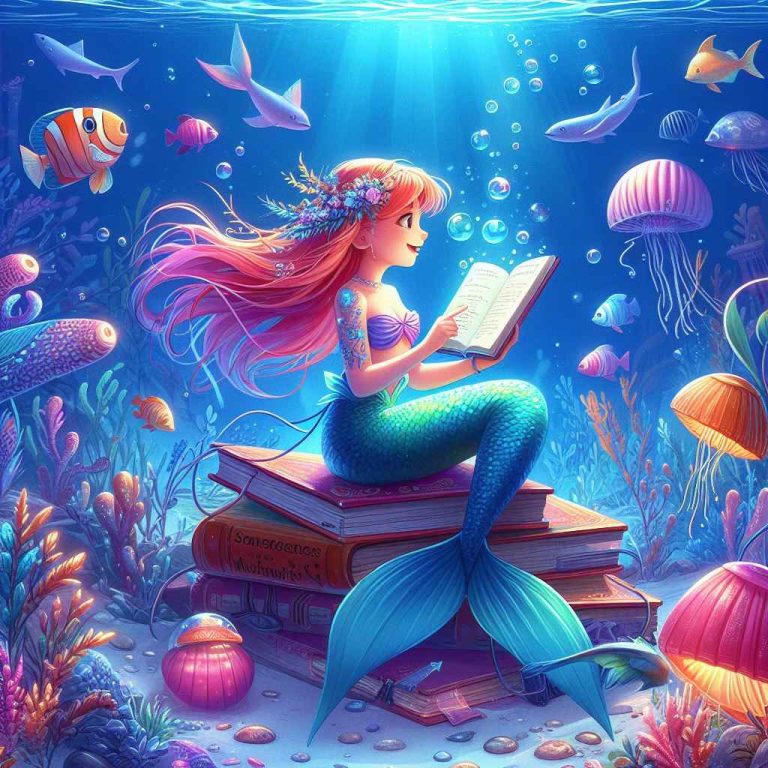The Enchantment of the Little_Mermaidd0
Mermaids have captivated human imagination for centuries, embodying a blend of mystique, beauty, and tragedy. Among the myriad tales featuring these aquatic beings, one stands out prominently: the story of the little_mermaidd0. Originating from the pen of Danish author Hans Christian Andersen, this timeless fairy tale has inspired countless adaptations, each adding layers of interpretation to its enchanting narrative.
| Fact/Figure | Details |
|---|---|
| Year of Publication | 1837 |
| Author | Hans Christian Andersen |
| Original Title | “Den lille Havfrue” |
| Number of Adaptations | Numerous |
| Disney’s Animated Film Release Year | 1989 |
| Box Office Revenue (Disney’s Film) | Over $200 million worldwide |
| Broadway Musical Premiere Year | 2008 |
| Number of Languages Translated Into | Over 150 |
| Cultural Influence | Inspires art, literature, films, and music globally |
| Feminist Interpretations | Explores themes of agency, empowerment, and self-discovery from a feminist perspective |
| Symbolism | The sea represents the subconscious, the mermaid symbolizes longing and transformation, and the prince represents salvation |
The Origin of the little_mermaidd0
Hans Christian Andersen’s “The little_mermaidd0” first appeared in 1837 as part of a collection of fairy tales. Drawing from Scandinavian folklore and mythology, Andersen crafted a poignant story that transcends its origins. Unlike traditional mermaid myths, which often portray them as seductive or malevolent creatures, Andersen’s mermaid is depicted as a courageous and empathetic figure, yearning for a soul and the love of a human prince.
| Aspect | Details |
|---|---|
| Origin of the Little Mermaid | Hans Christian Andersen’s “The Little Mermaid” first appeared in 1837 as part of a collection of fairy tales. Drawing from Scandinavian folklore and mythology, Andersen crafted a poignant story that transcends its origins. Unlike traditional mermaid myths, which often portray them as seductive or malevolent creatures, Andersen’s mermaid is depicted as a courageous and empathetic figure, yearning for a soul and the love of a human prince. |
| Plot of the Little Mermaid | Central to the story is the mermaid protagonist’s desire to become human after falling in love with a prince she saves from drowning. To achieve her wish, she strikes a Faustian bargain with the sea witch, sacrificing her voice in exchange for legs. However, her transformation comes at a cost: she must win the prince’s love and obtain a soul within a stipulated time, or else face oblivion. |
| Themes in the Little Mermaid | At its core, “The Little Mermaid” explores themes of love, sacrifice, and the quest for identity. The mermaid’s willingness to relinquish her voice symbolizes the sacrifices one makes for love, while her yearning for a soul reflects a deeper existential longing for fulfillment and purpose. |
| Adaptations of the Little Mermaid | Andersen’s tale has inspired numerous adaptations across various mediums, from Disney’s iconic animated film to stage productions and modern retellings. Each adaptation brings its own interpretation to the story, exploring themes of agency, empowerment, and self-discovery. |
| Impact and Legacy | “The Little Mermaid” continues to resonate with audiences worldwide, transcending generations and cultures. Its enduring popularity can be attributed to its universal themes and timeless appeal. Moreover, the character of the little mermaid has been reinterpreted through a feminist lens, challenging traditional gender roles and advocating for self-empowerment. |
| Conclusion | In conclusion, “The Little Mermaid” remains a beloved classic that continues to enchant audiences with its timeless tale of love, sacrifice, and redemption. Its enduring legacy serves as a testament to the power of storytelling to transcend boundaries and inspire generations to come. |
The Plot of the little_mermaidd0
Central to the story is the mermaid protagonist’s desire to become human after falling in love with a prince she saves from drowning. To achieve her wish, she strikes a Faustian bargain with the sea witch, sacrificing her voice in exchange for legs. However, her transformation comes at a cost: she must win the prince’s love and obtain a soul within a stipulated time, or else face oblivion.
Themes in the little_mermaidd0
At its core, “The little_mermaidd0” explores themes of love, sacrifice, and the quest for identity. The mermaid’s willingness to relinquish her voice symbolizes the sacrifices one makes for love, while her yearning for a soul reflects a deeper existential longing for fulfillment and purpose.
Adaptations of the little_mermaidd0
Andersen’s tale has inspired numerous adaptations across various mediums, from Disney’s iconic animated film to stage productions and modern retellings. Each adaptation brings its own interpretation to the story, exploring themes of agency, empowerment, and self-discovery.
Impact and Legacy
“The Little Mermaid” continues to resonate with audiences worldwide, transcending generations and cultures. Its enduring popularity can be attributed to its universal themes and timeless appeal. Moreover, the character of the little mermaid has been reinterpreted through a feminist lens, challenging traditional gender roles and advocating for self-empowerment.
In conclusion, “The Little Mermaid” remains a beloved classic that continues to enchant audiences with its timeless tale of love, sacrifice, and redemption. Its enduring legacy serves as a testament to the power of storytelling to transcend boundaries and inspire generations to come.
FAQs (Frequently Asked Questions)
- Is “The little_mermaidd0” based on a true story?
- No, “The little_mermaidd0” is a work of fiction penned by Danish author Hans Christian Andersen.
- What is the moral of “The little_mermaidd0”?
- The tale explores themes of love, sacrifice, and the pursuit of identity, urging readers to consider the consequences of their choices.
- How does Disney’s adaptation differ from Andersen’s original story?
- While Disney’s version retains the core elements of the tale, it introduces several deviations, including a happier ending and a stronger emphasis on romance.
- Why is “The Little Mermaid” considered a feminist text?
- Some interpretations view the story as a feminist allegory, highlighting the mermaid’s agency and her quest for self-determination in a patriarchal society.
- What lessons can be learned from “The Little Mermaid”?
- The tale teaches the importance of self-discovery, resilience, and the pursuit of one’s dreams, even in the face of adversity.





